
Do you have what you need to make your garden grow?


Garden Center
Store Hours
Mon-Sat:
6:00am - 10:00pm
Sun:
8:00am - 8:00pm
Curbside:
09:00am - 6:00pm
Location
Popular at Your Garden Center
Spring Garden Supplies
Explore Popular Spring Plants
Garden Project Calculators
;Resize=(703,395.44))
Grass Seed Calculator
When you're ready to seed your lawn, our calculator helps you estimate the amount of grass seed you'll need to get the job done.
;Resize=(703,395.44))
Mulch Calculator
Enter your preferred material, the square footage and mulch depth of the coverage space for accurate results.
;Resize=(703,395.44))
Fencing Calculator
We'll calculate the amount of fencing you should purchase based on your property needs.
Shop Outdoor and Garden Brands
Frequently Asked Questions About Gardening
What planting zone am I in?
Check the USDA zone map, as planting zones have changed slightly over the years. Zones with higher numbers can plant earlier in the year. Choose plants that are meant for your zone and increase your odds of gardening success.
Can I plant seeds directly in the ground?
If the soil isn't frozen or cold, consider planting your flower, fruit, or vegetable seeds directly into your garden. This is called the "direct sow" method. The time to plant will be after the threat of frost is gone for the season, as sprouts and seedlings can't weather those conditions. You can also start your seeds indoors if you'd like. Consult your seed packet for when and how to sow seeds.
How do I plant seeds?
Check your seed envelope for the best info on how to grow spring flowers, fruits, and vegetables — indoors or outdoors. Requirements vary with each seed type. Some seeds should only be planted indoors, and your seed envelope will tell you that, too. You'll be a pro at planting seeds in no time.
Do I have to harden off my seedlings before planting them outside?
Yes, for best results, if you raised plants indoors from seeds in your own plant nursery, harden them before you transplant them. Hardening is the process of getting them used to outdoor life and the fluctuating spring weather. It slows their growth until they're strong and ready to take off during a spring warm front. Hardening also makes your plants more resilient to a sudden cold snap.
How do I plant a transplant or baby plant?
Squeeze the plastic around the plant to loosen the soil. Carefully coax the plug of dirt with the plant into your palm, then place it into the hole you dug for it. Make sure the top of your transplant's soil is even with the garden soil, and carefully press the earth into place. Avoid mounding a volcano of dirt around your plant, and don't tamp down the ground too tightly. Your plant baby needs to breathe.
Should I use peat moss starters or coir starters?
Seed starters, full of nutrients in convenient pellets or pots, work for new and experienced gardeners. You don't have to use these starters if you're planting in soil, but you may want to. Starting seeds in peat pots works best for delicately rooted plants like cucumbers and eggplant, as well as flowers that need acidic soil. Some people prefer coir starters instead, as they have a neutral pH. Check what type of soil your plants need to help narrow it down, and chat with a garden center associate if you need more info.
Garden Project Ideas
The Home Depot Garden Center at Dale City
Celebrate Springtime Gardening
On beautiful spring days, tidy the yard before everything blooms in earnest. Many people feel inspired to refresh their outdoor space for entertaining as well. Don't forget to sweep out the gazebo and clean the shed in preparation for spring, too. No matter what outdoor projects you choose to tackle and which plants you need, search for your local plant nursery and find that The Home Depot Dale City Garden Center can help you enjoy your spring activities to the fullest.
Plant Hardiness Zones Explained
The first thing you should know when planting veggies, spring flowers, and other seeds is your planting zone. Every location in the U.S. and its territories is sorted into blocks by climate. Find your zone on the USDA planting zone map and learn when to plant seeds.
For example, you could transplant bell peppers outdoors in mid-March in Zone 10, but not until the end of May in Zone 4. For best results, choose plants in your zone number or less. In other words, a Zone 9 garden can support plants listed as Zones 1–9. You can plant seeds indoors roughly a month before you can plant them outside, known as direct sow. Read your seed packet for details. If you start them a little later than recommended, it's not ideal, but it will even out as time passes.
Gardening in Your Growing Zone
Kentucky, Tennessee, Virginia, and West Virginia are in Zones 6–8. Cruciferous veggies and certain herbs are ready to grow when you're ready to plant. This includes cabbage, broccoli, and kale. Greens like spinach and artichokes, early-blooming annuals like marigolds, and fragrant herbs, including basil, parsley, and oregano, also don't mind an early beginning. Even in the highest peaks of West Virginia in Zone 5b, traditional garden vegetables like peppers of all kinds, cucumbers, and tomatoes are fine with an early spring or late winter start indoors under the grow lights.
Look up the date of your last predicted frost, then count backward 6 to 8 weeks. That's the time you should sow your seeds indoors. The idea is to have strong baby plants that are ready for transplant at the same time the ground is warm enough. Do your best and enjoy the process — watching your plants grow, bloom, and put out tiny veggies that'll grow to harvest size is part of the fun.
Plant Seeds Outside With Direct Sow
Planting seeds with the direct sow method, right into the soil, is another option. There's less tending and planning than growing indoors. If you like to go with the flow, follow the instructions on your seed package and give it a try.
Your seeds might get washed away or struggle to grow, or bugs or animals might eat the sprouts. But if you're really lucky, you might get strong sprouts, perfectly spaced and ready to grow all spring. The reality of your sown seeds will usually be somewhere in between, and spreading out tiny sprouts throughout the soil isn't so bad. You know those sprouts are primed to survive and hardy, although there are no guarantees.
Start Seeds Indoors
If you're eager to get growing or would like more control in the care and feeding of seedlings, start your seeds indoors in your own plant nursery. In general, you can plant seeds indoors about a month before you can do it outside. Like direct sow, you push the seeds into the soil as directed on the seed packet, but that's where the similarities end.
You're responsible for giving them quality substitutes for sunlight and rain. Keep your seeds warm with warming mats and grow lights, water them carefully with a mister or watering can, then thin them as they germinate in groups of three. Give them a boost with a gently blowing fan as they lengthen into sprouts if you'd like. Harden them off to get them used to outdoor conditions, then transplant them into your garden when they're big enough.
Transplant Young Plants Into Their New Homes
Carefully take your seedling out of the container. A good way to do this is to turn it sideways or upside-down and gently squeeze the plastic to break the seal. If your transplant grew in the garden, dig deeper than you think with your garden trowel and leave plenty of room around the stem. You don't want to damage the root ball. Place it into the hole you dug for it, even with the surrounding soil.
Protect Your Garden With Mulch
Finish it all off with compost and mulch. Compost enriches the soil so your garden can grow even better. It may help foster stronger plants that bear more fruit and flowers. Mulch controls weeds and keeps your soil from drying out. Compost and mulch can be purchased in-store or created at home. The next time you're looking for "mulch near me," stop by the Garden Center to get the right amount.
Greet the Spring
Don't miss a minute of growing season. Prepare to fertilize your lawn, plan your garden and landscaping, and browse The Home Depot nursery to find inspiration on which spring flowers to plant when the weather warms. For those without lawns, consider adding an outdoor rug, artificial grass, or a pellet grill to your balcony or patio. Shop for the fertilizer, soil, and seeds you need in the aisles of your Dale City Garden Center, online, or on our mobile app. Let's get growing together.
Nearby Stores
Find Another Store
6691 Frontier Rd
Springfield, VA 22150
10.96 mi
Mon-Sat: 6:00am - 10:00pm
Sun: 8:00am - 8:00pm
8805 Liberia Ave
Manassas, VA 20110
11.11 mi
Mon-Sat: 6:00am - 10:00pm
Sun: 8:00am - 8:00pm
7710 Richmond Hwy
Alexandria, VA 22306
13.41 mi
Mon-Sat: 6:00am - 10:00pm
Sun: 8:00am - 8:00pm
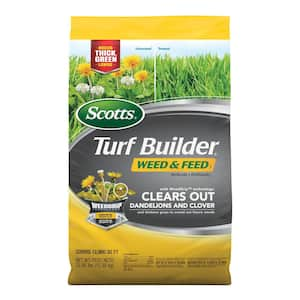
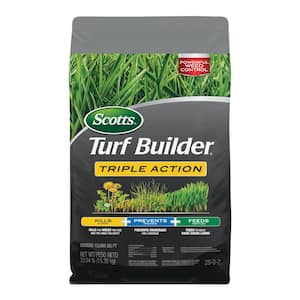
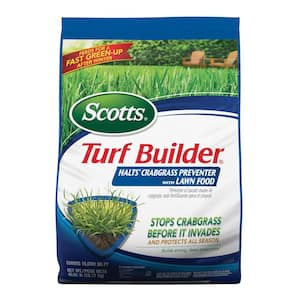
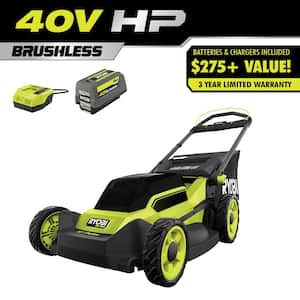
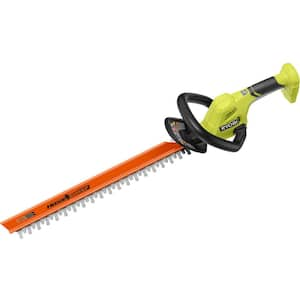
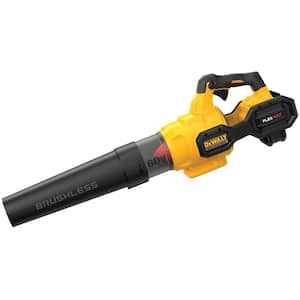
)
)
;Resize=(300,300))
)
)
/2023_P2_Rain_Barrels_Product%20Image%20(square).jpg?im=Resize=(300,300))
)
;Resize=(300,300))
)
;Resize=(300,300))
;Resize=(300,300))
;Resize=(300,300))
)
;Resize=(300,300))
/12_SOIL_B_0420_Social%20media%20(square).jpg?im=Resize=(300,300))
;Resize=(300,300))
;Resize=(300,300))
)
)
)
;Resize=(300,300))
;Resize=(300,300))
;Resize=(300,300))
;Resize=(300,300))
;Resize=(300,300))
)
;Resize=(300,300))
/18Patio_Camden_Seagrass_5pcSeating_Planters_302468736_DTL3_L_Social%20media%20(square).jpg?im=Resize=(300,300))
;Resize=(300,300))
;Resize=(300,300))
;Resize=(300,300))
;Resize=(300,300))
;Resize=(300,300))
)
)
)
.jpeg?im=Crop,rect=(363.69230769230774,1.2307692307692308,958.7692307692308,958.7692307692308);Resize=(300,300))
;Resize=(300,300))
;Resize=(300,300))
;Resize=(300,300))
)
)
;Resize=(300,300))
;Resize=(300,300))
;Resize=(300,300))
)
;Resize=(300,300))
)
)
)
)
;Resize=(300,300))
;Resize=(300,300))
)
;Resize=(300,300))
)
)
/Capello_Spring_Mum_10in_Social%20media%20(square).jpg?im=Resize=(300,300))
;Resize=(300,300))
)
)
;Resize=(300,300))
;Resize=(300,300))
)
)
)
)
)
;Resize=(300,300))
;Resize=(300,300))
;Resize=(300,300))











































